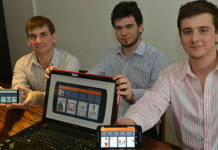Approved by the ANMAT, this wireless device is placed directly in the heart with a minimally invasive surgery.
Buenos Aires (Argentina) .- For the first time a pacemaker without cables will be implanted in june in Argetnina. This new wireless device is as small as a flash drive or a AAA battery. And, unlike traditional pacemakers, is placed directly into the heart through a minimally invasive surgery, which reduces the risk of complications, hematomas and infections during the procedure.
The new technology is already used in Europe and the US, where a nano version has been approved. In our country, it will be a medical team at the Cardiovascular Institute of Buenos Aires in charge of implementing this device for the first time.
This situation occurs mainly as a result of conditions such as symptomatic bradycardia or atrial fibrillation, ailments usually diagnosed in older adults.
Local statistics show that in Argentina between 20 and 25 thousand traditional pacemaker; ie models using cable are implanted every year, Therefore, specialists are enthusiastic about the change this represents for patients.
«Once we have the pacemaker, we will choose the patient and within 15 or 20 days we will make the implant with a minimally invasive technique that we have already been using for other interventions”, said Fernando Scazzuso, head of Arrhythmia and Electrophysiology ICBA, an institution that performs more than one hundred pacemaker implants each year.
The new device cannot be used in all people with heart rhythm disorders, as it is unicameral (works only on the ventricle); while some patients require a traditional dual-chamber pacemaker (ventricular and atrial), still there isn’t a version for it.
«In the context of modern medicine this pacemaker is something very new and important, especially for the speed of installation technique and the possibilities offered. We have already been working in the training of doctors, and the results we see are very promising, «said Oscar Mangano, Product Manager at the company St. Jude Medical Argentina.
«Complications associated with the procedure of conventional pacemaker implantation are between 6 and 9%, lie the new system reduces that risk and improve patient satisfaction, among other things because the process is minimally invasive and leaves no scars or protrusions» said Gustavo Maid, head of arrhythmias in the Hospital Italiano de Buenos Aires.
«On the other hand, the risk of hematomas or infections appearing from the ‘pocket’ contained in the generator is also low. Furthermore complications associated with the old cable disappear, such as fracture, insulation breakdown, thrombosis or venous obstruction teams. And also it has fewer restrictions of postimplantation activity”, the expert added. Maid said it is possible that in this institution the new device will be implanted soon. «We are waiting for the availabitly of the machines to complete the training and start using them.»
Another advantage that the wireless pacemaker has over the traditional one is the possibility of replacement: «When a patient requires a permanent pacemaker, ie lifelong, every eight or ten years you have to replace the battery. In these new ones too, but the difference is that in the conventional technology the battery cables are not removed and, therefore, get old. However in this case the device is removed and a new one is placed «concluded Scazzuso.
This week the Food and Drug Administration (FDA for its acronym in English) of the United States approved the Medtronic pacemaker without cable. The brand new device, intended for patients with atrial fibrillation or bradycardia syndrome, is called Micra Transcatheter Pacing System and became the smallest market, with just 2.54 centimeters. This model also positioned directly on the heart, through a catheter and through an incision made in the groin.
It is estimated that more than 4 million people worldwide have a pacemaker implanted or other device which controls heart rate, and that each year between 700,000 and one million people get one implanted
Source: http://www.proyecto-salud.com.ar/shop/detallenot.asp?notid=11893









